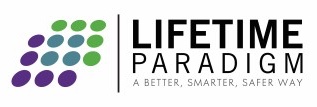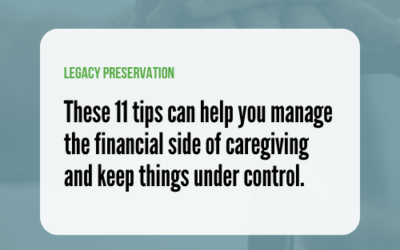Tax Planning
Travel to a Fancy Resort Hotel Where You Use Your Laptop for CE
Bradford Institute
Travel to a Fancy Resort Hotel Where You Use Your Laptop for CE
You may have stumbled on an unusual continuing education (CE) opportunity that feels like a vacation.
It works like this:
- You take the classes on your laptop.
- You sit alone in your five-star resort hotel room.
- During the class, you are on the internet with other attendees who are sitting in other five-star resort hotel rooms in the same time zone.
- You attend the class for just over four hours each class day.
- You earn CE credits.
Now you have the basics.
What Could You Deduct?
Assuming the CE event occurs in the Virgin Islands at a St. Thomas resort and qualifies as a tax-deductible business education event, you could deduct:
- the tuition (say, $700),
- airfare and other travel (say, $5,000),
- hotel room (say, $7,000), and
- meals (say, $1,500)
Yep, that’s a lot. You might spend far less—or more.
Hurdle
You face one hurdle. Is this a CE event or a disguised vacation?
If it’s a CE event that’s ordinary and necessary to your business, it’s deductible and so is the travel.(1)
Business Day
Let’s start with the little more than four hours you spend each workday on education while at the resort. Does that rise to the level of a workday?
When you travel to a foreign destination (which St. Thomas qualifies as, for purposes of the travel rules), you don’t need to attend classes for eight or more hours for tax law to call your education day a business day. You have a business day when, during normal business hours, your principal activity is the pursuit of business.(2) (Here, the education qualifies as pursuit of business.)
In tax law, principal or primary simply means the majority, and in the U.S., our normal workday is eight hours. Thus, you only need to work four hours and one minute to make that day a business day. Logging in on your laptop for just over four hours and then shutting down means that you have spent more than four hours in the pursuit of business on each education day.
Education Event
The IRS. According to the IRS, a trip to a resort or on a cruise ship may be a vacation even if the promoter advertises that it is primarily for business. The scheduling of incidental business activities during a trip, such as viewing videotapes or attending lectures dealing with general subjects, won’t change what is really a vacation into a business trip.(3)
Congress. While enacting the Tax Reform Act of 1986, conferees stated that videotapes of lectures on topics related to the taxpayer’s trade or business, to be viewed at the convenience of the participant, do not rise to the level that permits deductions for travel or meal costs.(4)
The conferees went on to state, however, that when a participant must attend the videotaped or televised materials in person, then the general rules for deducting travel costs apply.(5)
Here are some arguments in your favor:
- You had to be in this hotel, or some other authorized hotel in the same time zone, to attend the event.
- You had to attend during the scheduled time to obtain CE credits.
- The course is obviously a business-related course because it qualifies for continuing education.
- You are in a session with and communicating with your fellow professionals.
North American Area
For a convention, meeting, or seminar outside the 50 U.S. states to easily qualify as a deductible business event, it must occur in the tax-law-defined North American area.6
St. Thomas, for example, is in the defined area.
This means that you must have an ordinary and necessary business reason to attend an educational event in St. Thomas, and that reason need be no different than the reason for attending the same event in Chicago or Kansas City.
Percentage of Travel Costs for Deduction
On this trip, you face the following rules that can affect the amount of your tax deductions for airfare, hotel, and meals:(7)
- If the trip is for seven days or less, excluding the day of departure, you deduct all the travel of getting to and from St. Thomas.
- For each business day, you may deduct your hotel and meals.
- Weekend days can become business days depending on the travel.
- If the trip to St. Thomas lasts more than one week, you face the 76/24 test, where spending 76 percent of the days on business triggers a 100 percent deduction for the transportation costs of getting to and from St. Thomas.
Too Expensive?
Won’t the IRS consider the $14,200 spent for this education event too expensive and disallow the expenses? No, we have not seen an expense disallowed because it was lavish or extravagant. We’re not alone.
The Bloomberg BNA Tax Management Portfolio on entertainment deductions states: “No reported case to date has upheld a disallowance under Section 274, in the case of either meal or entertainment costs, or under Section 162, in the case of travel costs, on the grounds that they were ‘lavish or extravagant.’”(8)
Takeaways
This article highlights an innovative continuing education opportunity where participants can earn credits while staying at a five-star resort hotel.
While it may initially seem like a disguised vacation, we note the many factors that make this experience tax-deductible as a business education event, including the following:
- Attending the event in person within the same time zone as other attendees is mandatory for earning CE credits.
- The course content is business-related and qualifies as continuing education.
- Participants communicate with fellow professionals during the sessions.
- Thomas is within the tax-law-defined North American area, meaning no special rules apply to the educational event, and the more liberal foreign rules apply to the travel.
Depending on the duration of the trip and the number of business days, tax deductions for airfare, hotel, and meals may be available.
Finally, the IRS is unlikely to disallow expenses based on the perceived lavishness or extravagance of the event, as no reported case has disallowed lavish or extravagant expenses under Sections 274 or 162.
- Section 1.162-2(b).
- Section 1.274-4(d)(2)(iii).
- IRS 463, Travel, Gift, and Car Expenses (2022), dated Feb. 1, 2023, p.7.
- Rpt. 99-841, ps. II-31 – II 32.
- Ibid.
- For details, see IRS Expands Tax-Deductible Meetings and Seminars Boondoggle Areas.
- How to Deduct the Transportation Component of Your Business Travel.
- Farley and Crisalli, 519-3rd M., Travel, Transportation, Entertainment, Meal, and Gift Expenses, p. 45.

SERVICES WE OFFER RELATED TO THIS TOPIC
The information contained in this post is for general use and educational purposes only. However, we do offer specific services to our clients to help them implement the strategies mentioned above. For specific information and to determine if these services may be a good fit for you, please select any of the services listed below.
The 4x4 Financial Independence Plan ℠
The Smart Tax Minimizer ℠ (for Consumer and Home-Based Businesses)
The Smart Tax Planning System for Business Owners ℠
Retirement Planning
Tax Planning
Coaching and Consulting
Need More Information?
If you require additional details regarding these services, please don’t hesitate to reach out to us at [email protected]. Alternatively, you can schedule a complimentary 15-minute consultation to inquire further and determine whether we align with your needs and expectations. We look forward to assisting you!
EP 0012. The Three Generations of Annuities
The Financial Independence Now Podcast Hosted by Randy LuebkeIn Episode 12 of the Financial Independence Now podcast,...
11 Financial Tips to Make Caregiving Easier
Tax Planning Caregivers generally tend to their elderly/ disabled family members as a labor of love, but it can also...
EP 0011. Budgeting for Dummies
The Financial Independence Now Podcast Hosted by Randy LuebkeIn this episode of Financial Independence Now, host Randy...
Investment Advisory Services are offered through Lifetime Financial, Inc., a Registered Investment Advisory. Insurance and other financial products and services are offered through Lifetime Paradigm, Inc. or Lifetime Paradigm Insurance Services. Neither Lifetime Financial, Inc. nor Lifetime Paradigm, Inc., or its associates and subsidiaries provide any specific tax or legal advice. Only guidance is provided in these areas. For specific recommendations please consult with a qualified, licensed Advisor. Past performance is no guarantee of future results. Your results can and will vary. Investments are subject to risk, including market and interest rate fluctuations. Investors can and do lose money and, unless otherwise noted, they are not guaranteed. Information provided is for educational purposes only and is not intended for the sale or purchase of any specific securities product, service or investment strategy. BE SURE TO FIRST CONSULT WITH A QUALIFIED FINANCIAL ADVISER, TAX PROFESSIONAL, OR ATTORNEY BEFORE IMPLEMENTING ANY STRATEGY OR RECOMMENDATION DISCUSSED HEREIN.
This message is intended for the use of the individual or entity to which it is addressed and may contain information that is privileged, confidential and exempt from disclosure under applicable law. If you are not the intended recipient, any dissemination, distribution or copying of this communication is strictly prohibited. If you think you have received this communication in error, please notify us immediately by reply e-mail or by telephone (800) 810-1736 and delete the original message.
This notice is required by IRS Circular 230, which regulates written communications about federal tax matters between tax advisors and their clients. To the extent the preceding correspondence and/or any attachment is a written tax advice communication, it is not a full "covered opinion." Accordingly, this advice is not intended and cannot be used for the purpose of avoiding penalties that may be imposed by the IRS.




